|
JEAN FOUQUET - CAPTURE OF JERUSALEM BY
PTOLMENY I SOTER - PAGE 3
|
Jesus as a
Caesar |
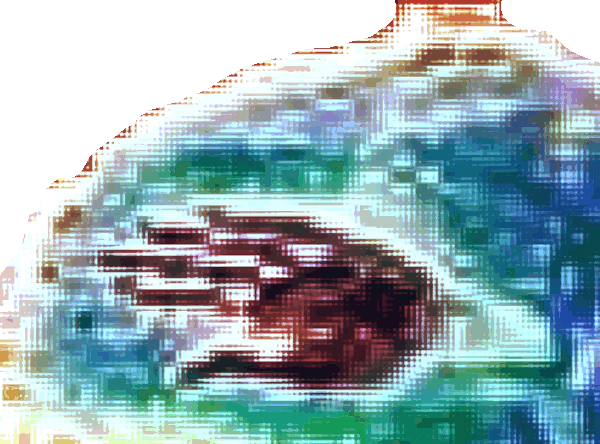
Right Hand of God
|
- If you've ever wondered why a humble carpenter like
Jesus was
executed with the punishment reserved for traitors of the
empire, and why all the 'leaders' were so concerned about him.
- And why Pontius Pilate publicly washed his hands of the
whole deal?
- Plus why
the sign over his head on the cross read, 'King of the Jews'
in 3 languages when that wasn't Roman protocol.
- Baruch
Spinoza (1632-1677) found the answer in genealogical records the church burned in
325 AD, however, copies survived in Coptic monasteries in
Egypt.
All accusations of bastardy against Caesarion were cast from a Roman perspective; their intention was not to portray Caesarion as inappropriate for the throne of Egypt, but rather to deny that he was Julius' heir by Roman law. (Wikipedia)
|

Jerusalem |
- Spinoza was a philosopher of Portuguese-Jewish origin, who was born in the Dutch Republic
and because of his views he was expelled from his Jewish
community.
- During his life he did extensive biblical
research, especially focused on early
Christianity.
- He discovered documents in the Vatican that proved that
Jesus was the son of Caesarion and grandson of Julius Caesar
(Lucius?? Julius Caesar) and Cleopatra.
- There is some
confusion from Spinoza about the generations that followed
Julius Caesar.
- Spinoza was able to obtain copies from a
Dutch cardinal who was executed 3 days later.
- Follow up on his history (not good)
Baruch Spinoza and Sabbatai Zevi.
Ptolemy Caesar was born in Egypt in mid to late
47 BC. His mother Cleopatra gave him the royal names
Theos Philopator Philometor ('father-loving,
mother-loving God') and insisted that he was the son
of Roman politician and dictator Julius Caesar.While
he was said to have inherited Caesar's looks and
manner, Caesar did not officially acknowledge him. (Wikipedia)
|
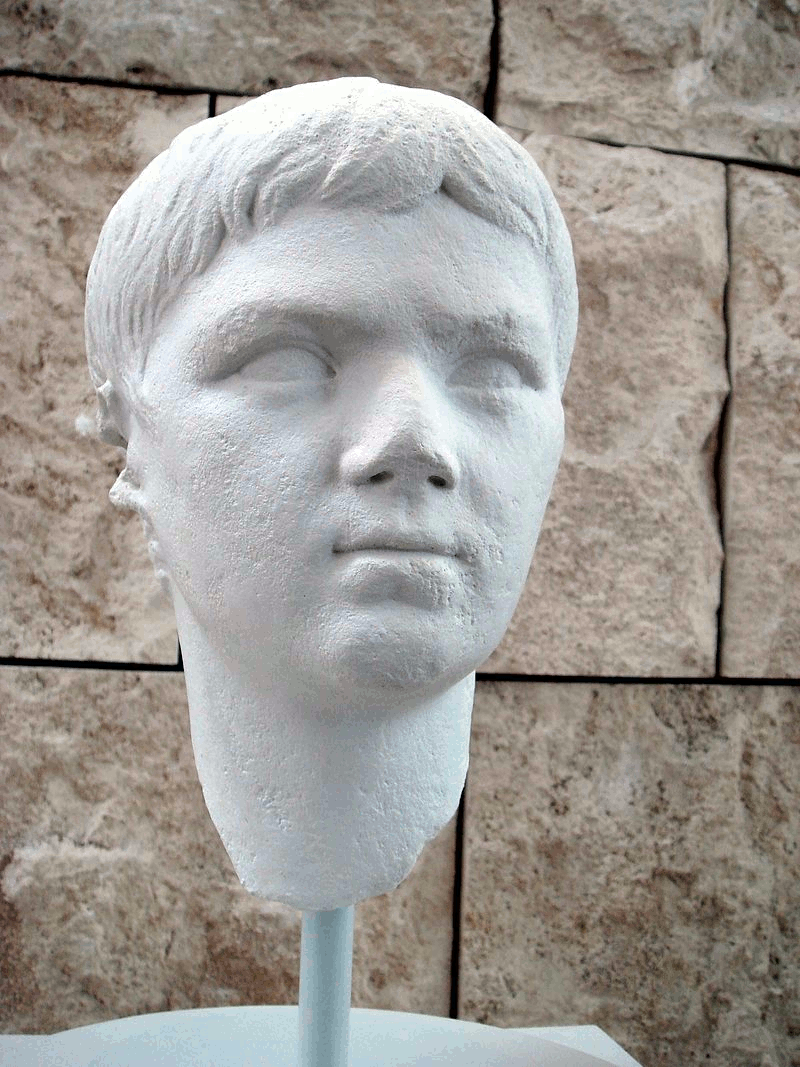
Giovanni Dall'Orto, Attribution, via Wikimedia Commons
Lucius Julius Caesar |
- Just to make note of what Spinoza seemed to be
researching, Lucius Julius Caesar (17 BC-2 AD) was the brother of
Gaius Caesar (20 BC-4 AD) and both were the sons of Marcus Vipsanius
Agrippa and Julia the Elder, who was Caesar Augustus' only daughter.
- Lucius and his older brother, Gaius were adopted by
their grandfather, Caesar Augustus who was the adopted son of
Julius Caesar.
- As Caesar Augustus' adopted sons and joint-heirs to the Roman Empire, Lucius and Gaius had promising political and military careers.
- Lucius, 19, died of a sudden illness in August 2 AD, in Massilia, Gaul, while traveling to meet the Roman army in Hispania.
Marcus Vipsanius Agrippa (63 BC – 12 BC) was a
Roman general and statesman who was a close friend,
son-in-law and lieutenant to the Roman emperor
Augustus. Agrippa is well known for his important military victories, notably the Battle of Actium in 31 BC against the forces of Mark Antony and Cleopatra. He was also responsible for the construction of some of the most notable buildings of his era, including the original Pantheon. (Wikipedia)
|
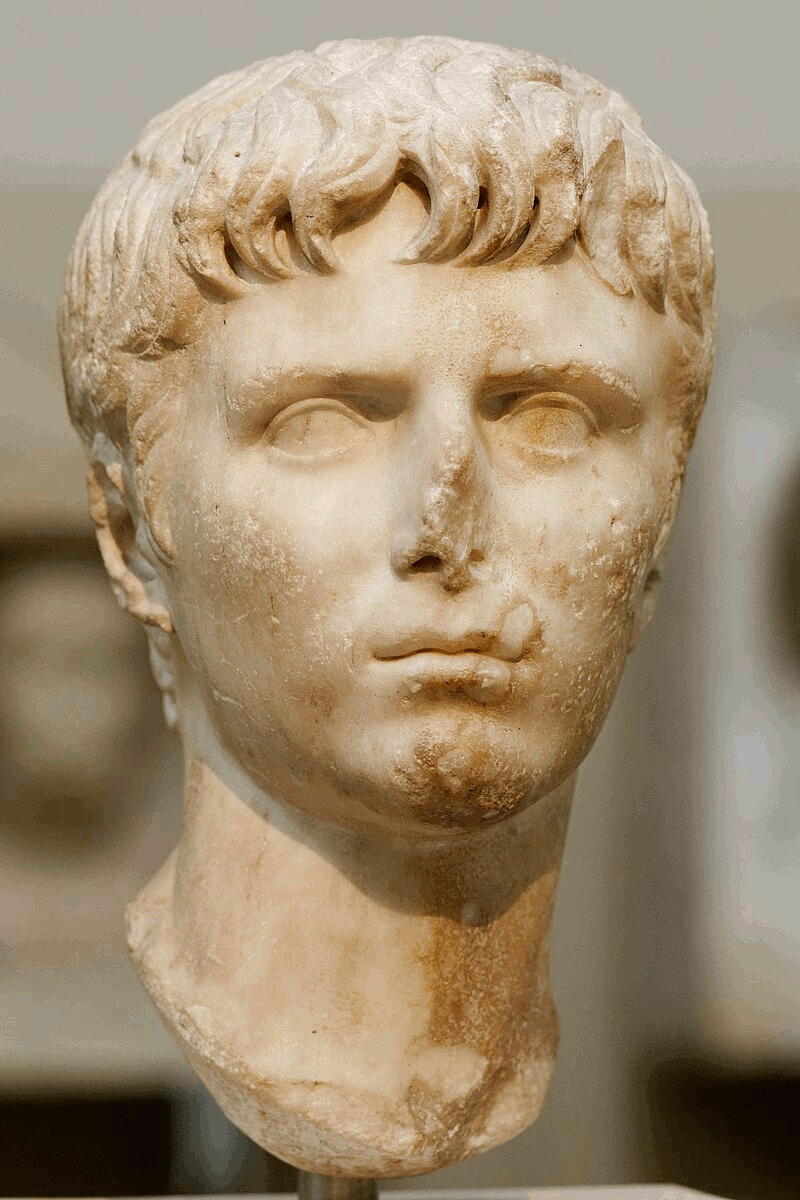
British Museum, CC BY 2.5 , via Wikimedia Commons
Gaius Caesar |
- Amazingly,
the eldest brother Gaius, who died at age 24, was honored with
a political career appropriate for the great-grandson of
Julius Caesar.
- In 4 AD, following the deaths of Gaius and Lucius, Augustus adopted his stepson, Tiberius, as well as his sole-surviving grandson, Agrippa Postumus.
Gaius Caesar experienced an accelerated political career befitting a member of the Julio-Claudian dynasty, with the Roman Senate allowing him to advance his career without first holding a quaestorship or praetorship, offices that ordinary senators were required to hold as part of the cursus honorum. (Wikipedia)
|

Egypt |
- So there is some confusion in the generations and
Jesus was either the son of Julius Caesar and Cleopatra, or
the grandson.
- It appears from records that have surfaced,
that Jesus' biological father was Caesarion (Little Caesar)
who was also known as Ptolemy XV Caesar (47 BC-30 BC).
- He
was the last pharaoh of the Ptolemaic Kingdom of Egypt and
jointly reigned in Egypt with his mother, Cleopatra VII, from
44 BC to 30 BC.
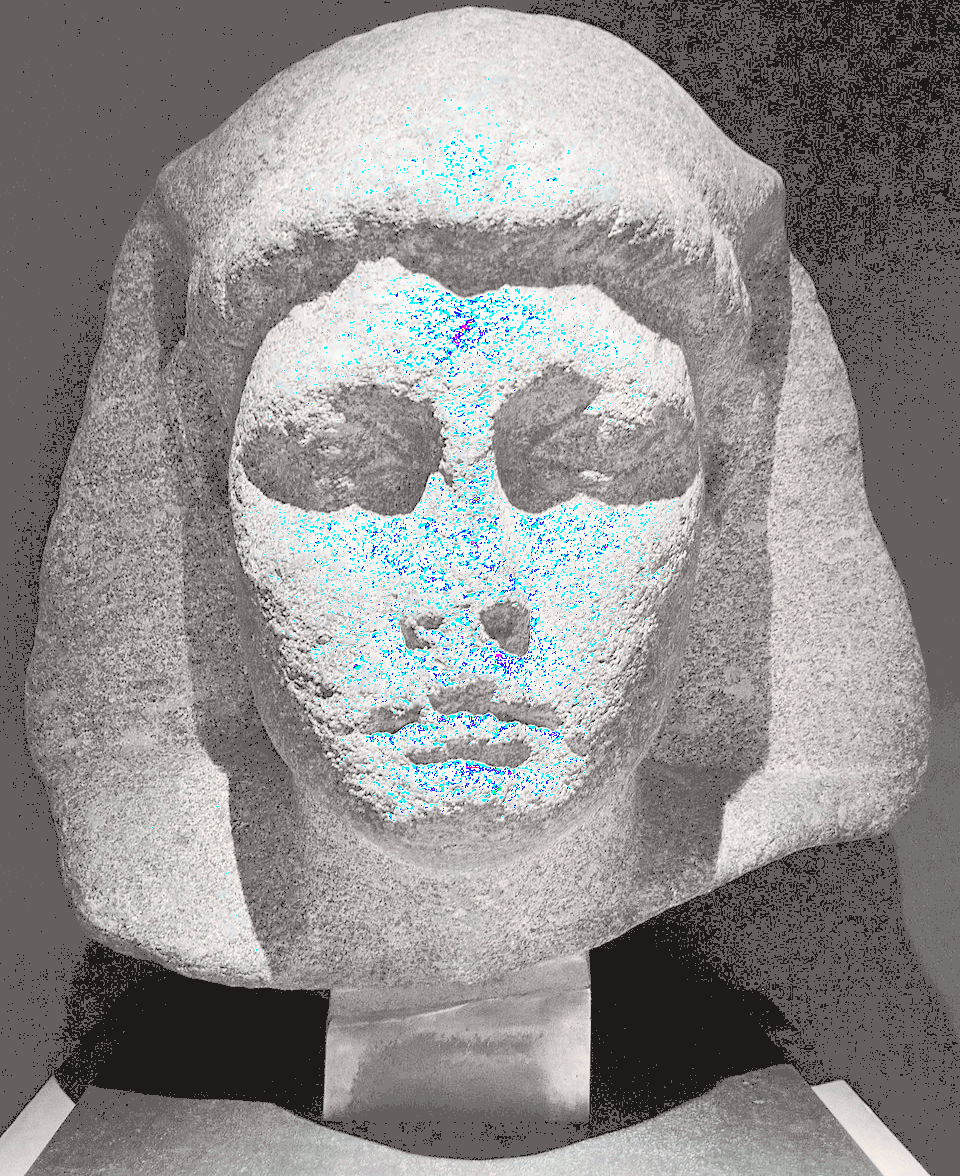
carolemage, CC BY-SA 2.0 , via Wikimedia Commons
Caesarion's granite
head |
- The 'official' story goes that Caesarion nominally
reigned as sole pharaoh after Alexandria had already fallen.
- He only reigned for a few days after his mother's death
and then he went into hiding.
- Where he remained until his execution
at age 17, which was ordereed by Octavian (uncle or adopted
brother) who became the first Roman emperor as
'Augustus.'
Caesarion was the eldest son of Cleopatra, and was the only known biological son of Julius Caesar, after whom he was named. He was the last sovereign member of the Ptolemaic dynasty, and the last pharaoh of Ancient Egypt, ending more than 3000 years of traditional kingship. (Wikipedia)
|
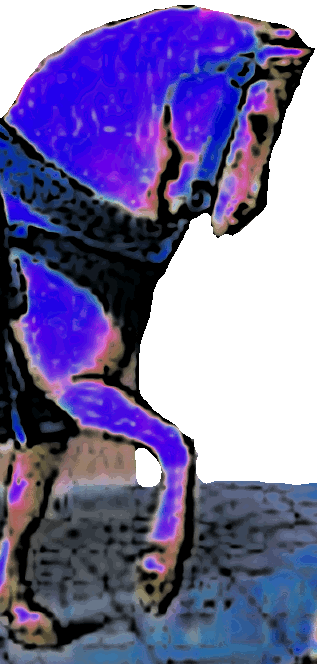
Trade route |
- Spinoza was able to prove through Phoenician trade
records that Caesarion escaped to Jerusalem, aided by
merchants in Alexandria.
- He changed his named to Panther,
which is a name we've heard about for several years now.
-
Panther (Pantera) was a Roman soldier stationed in Nazareth
and he raped a young Jewish woman named Mary.
- Mary's
family disowned her and Joseph was a kind older man who knew
her predicament and saved her from disgrace.
- Jesus was
born 9 months after Passover when the Roman soldiers were
allowed to fraternize with the local population.
- Mary was
14 years old and by then she was married to Joseph.
When Jesus was born, the Roman Emperor was Caesar Augustus. He ruled from 27 BC until his death in AD 14. The Bible indicates that a census was held during his reign, which required Joseph and Mary to travel to Bethlehem, where Jesus was born. (Assistant)
|

Panther runs across
the backyard
Yes
it did, called a
Mountain Lion
native to the
Americas and also
called a Cougar |
- The name Panther appears in ancient Jewish
texts as Jesus' father and the Talmund, written by rabbis,
despised Christianity and called him 'Jesus' Yeshu Ben
Pantera.
- No one really knows if Pantera was a name they
made up as an insult, or a real name, although there were some
records of a soldier with that name that were uncovered.

Roman Empire |
- Jesus, son of Panther, why would the officials invent
that name if it weren't true.
- But here is the real story,
not only was Caesarion the son of Caesar, by Roman law he was
the legitimate heir to the Roman Empire.
- Augustus
Octavian, was merely an adopted son of Julius Caesar meaning
that if Caesarion had children, they would have a legal claim
to the throne of Rome and that would be Jesus Christ.
- But Jesus wasn't just a descendant
of Jewish kings through David, he was Caesar's heir.
- Spinoza found that definitive proof in a documents that were
the official records of Jesus' trial that Pontius Pilate sent
to Tiberius who was emperor during Jesus's life and crucifixion.
Governors like Pilate were required to report to the emperor: on significant matters in their provinces, including disturbances or unusual events like the one surrounding Jesus's crucifixion. (Assistant)
|
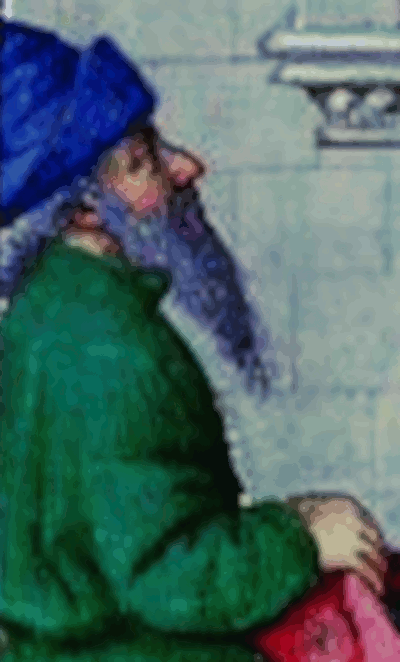
Vatican archives
|
- The Vatican claimed that those documents had been
destroyed, but Spinoza discovered that Constantine kept a copy
in the Vatican's secret archives.
- In this document, Pilate wrote
that 'The prisoner claims Caesarion descent through paternal
lineage.'
- Although there is much speculation about the
validity of this document, many believe it was written as a
result of Pilate's guilt because he knew who his prisoner
really was.
- Caesarion's parentage only came under
discussion following Caesar's death.
Spinoza argued that the earliest Christian writings, like those of Paul, did not mention a virgin birth but refer to Jesus as being 'of the seed of David, according to the flesh,' indicating Jesus was conceived through human means. ...and the references to Jesus as the "son of Joseph" in community discussions as proof of his human origins. (Assistant)
|
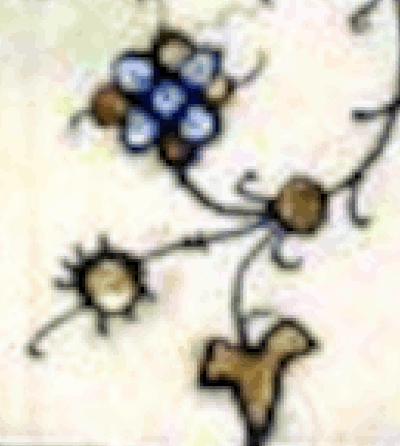
Gathering followers |
- Understand the panic in Rome, Jesus wasn't preaching a
new religion, he was gathering followers like a political
leader.
- When he came into Jerusalem he was acclaimed as
king, but it wasn't religious symbolism, it was a dynastic
claim.
- The Pharisees knew it, and the Romans knew it;
that's why the execution was so swift, brutal and public.
-
When Jesus said to 'Render what is Caesars's to Caesar,' it
was an inside joke because he was Caesar.
- He also knew
that a just king or pharaoh would not squander the taxpayer's
monies and use them for good purposes to benefit all.
Then Jesus said to them, “Give back to Caesar what is Caesar’s and to God what is God’s.” And they were amazed at him. (Mark 12:17)
|

Cleopatra's heir |
- Spinoza also claimed that the story about Herod
looking for an infant Jesus, was really about him looking for
a teenage Caesarion and that the wise men were Egyptian
emissaries looking for Cleopatra's heir.
- One can already see the ambiguity of
Caesarion's position; on the one hand, he was the legitimate successor to the Hellenistic rulers of Egypt, the Ptolemies.
- On the other, he was the son of Caesar and thus the half-brother
(or nephew) of Octavian Augustus, who was posthumously adopted by Gaius Julius Caesar in his will.
In theory, Caesarion could have claimed the throne of two great powers: Egypt and Rome. Of course, Rome was still technically a republic, but Octavian would soon become the first emperor of the Roman Empire. Theoretically, Caesarion might have ruled alongside him — or even instead of him. (medium.com)
|

Mountain Lion |
- Cleopatra was disliked in both Rome and Egypt (her
brothers were threatened by her), a
drastic shift in popularity from when Caesar was alive when Romans fawned over the Egyptian queen and sought her favor.
- Immediately after the assassination of her lover,
Cleopatra was forced to flee the capital.
- But who really
was the one who didn't like her and ran her out of town,
Caesar Augustus (Octavian) of course.
- The adopted son of
Julius Caesar who wanted the throne and the crucifixion wasn't
a religious event, it was a political assassination.
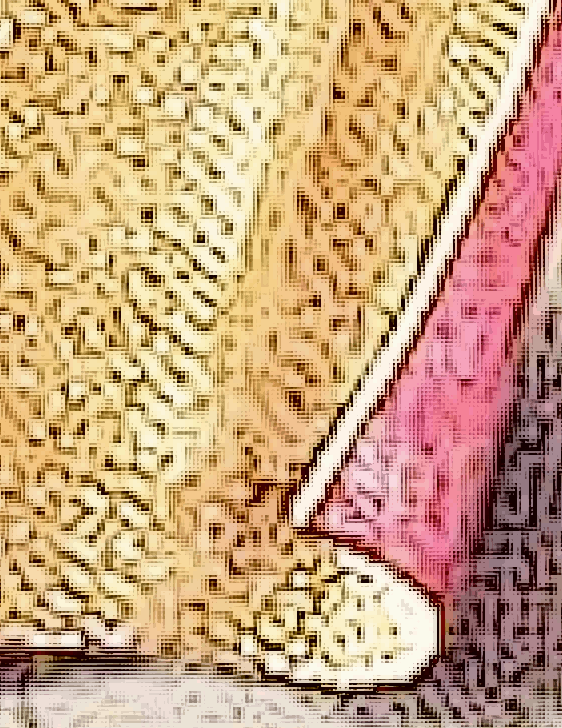
Logos on parchment |
- That left all Jesus' followers, led by his family to
pick up his cross and they spread a 'coded' version of the
truth in order to preserve it through written word, song and
art.
- Spinoza decoded the Gospel of John and
he believed it was a disguised political document.
- When
John writes about the 'word made flesh' he's using neoplatonic
code.
- Logos, or word, was the philosophical term for the
divine reason that governs the universe.
- However, logos
was also the unofficial title of Roman emperors as
representatives of that divine reason on earth.
The Word became flesh and made his dwelling among us. We have seen his glory, the glory of the one and only Son, who came from the Father, full of grace and truth. (John
1:14)
|

Heir |
- Jesus was literally the logos made flesh, the imperial
heir born in human form.
- When John wrote that the 'world
belonged to him' he wasn't referring to something cosmic, he
was saying that the Roman world belonged to him by birthright.

Mount Hermon |
- The transfiguration on the Mount Hermon, on the border
with Syria, where Jesus went to the ancient temple of
Augustus, his dynastic rival.
If you belonged to the world, it would love you as its own. As it is, you do not belong to the world, but I have chosen you out of the world. That is why the world hates you. (John
15:19)
|

Roman church (kirk) |
- There Jesus revealed his true identity to his closest
disciples, Peter, James and John and he showed them documents
to prove his lineage.
- The Vatican has known this for
1,700 years and that is the reason the Pope wears a triple
crown; it represents the 3 crowns Jesus should have inherited.
Democratic presidential candidate Barack Obama's big speech on Thursday night will be delivered from an elaborate columned stage resembling a miniature Greek temple.
The stage, similar to structures used for rock concerts, has been set up at the 50-yard-line, the midpoint of Invesco Field, the stadium where the Denver Broncos' National Football League team plays. (Reuters, 2008)
|
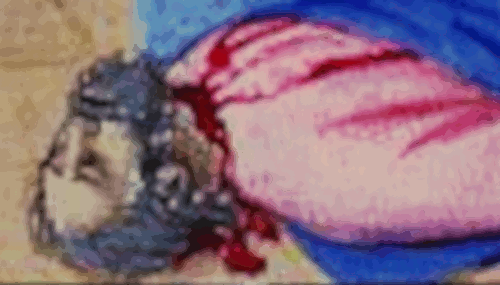
Murder (Redrum) |
- The structure of the Catholic church with its Roman
patriarchal hierarchy, its Latin, its bureaucracy, is a
continuation of the empire that killed its founder.
Some 80,000 supporters will see Obama appear from between plywood columns painted off-white, reminiscent of Washington's Capitol building or even the White House, to accept the party's nomination for president. Obama was taking a page from the campaign book of John Kennedy in 1960 when the future president delivered his acceptance speech to 80,000 people in the Los Angeles Coliseum.
(Reuters, 2008)
|
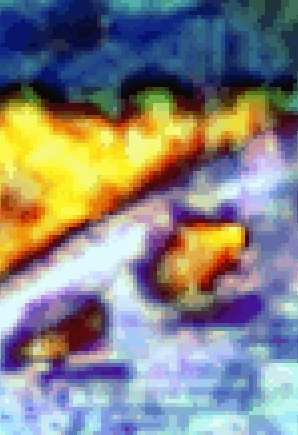
Vatican documents |
- Mark Antony (83 BC-30 BC), during his maneuvers
against Octavian after Caesar died, insisted that Caesarion
was Caesar's actual son, and Cassius Dio says that when
Antony's will was read aloud (illegally) it named Caesarion as
Julius Caesar's heir, NOT Augustus.
- Many ancient historians had an opinion such as
Suetonius whose writing cannot even be found now, Cassius Dio
and Plutarch although they were all just personal opinions.
- Only Suetonius gives some reason to think that perhaps
Antony's claim wasn't just for political points.
- It
doesn't matter what Spinoza's views about what Christ
represented were, the only thing that matters are the hard
facts he discovered that show Christ links to Julius Caesar
and that he is an heir to the empire.
Spinoza argued that the earliest Christian writings, like those of Paul, did not mention a virgin birth but refer to Jesus as being 'of the seed of David, according to the flesh,' indicating Jesus was conceived through human means. ...and the references to Jesus as the "son of Joseph" in community discussions as proof of his human origins. (Assistant)
|
|
Caesar
Augustus |
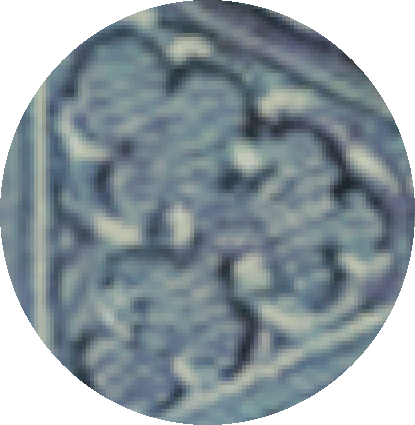
Pax Romana |
-
It was Caesar Augustus who initiated the Pax Romana,
'the peace of Rome,' and this was significant as his reign
signified a connection of peace for the world.
- So much so
that in 9 BC the Ara Pacis, an altar of peace, was constructed
in Rome by Caesar Augustus promoting the fact that he had
brought peace to the entire world.
- It's at its simplest,
an open-air altar for blood sacrifice associated with Roman
state religion.
- However, the Holy Family's exile in Egypt occurred when Egypt was a province of the Roman Empire, with Augustus Caesar ruling over the region.
Thine age, O Caesar, has again the land
Enriched with plenteous increase, and has borne
Home, in our own Jove's fane once more to stand,
The banners from proud Parthian portals torn...has wiped away our sins and
majesty of our empire were spred from the sun's bed in
the west to the east. As long as Caesar is the
guardian of the state, neither civil dissension nor
violence shall banish peace. (Horace, Ode 4:15)
|
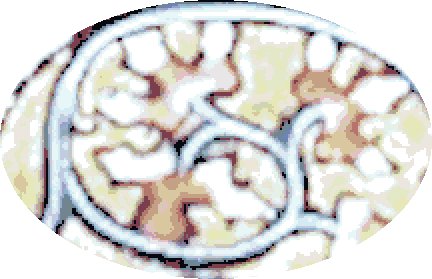
God is
Peace |
-
Virgil also spoke of 'peace' in the Aeneid which is
one of the most important works for the Roman world.
- This
was the attitude of the Romans in the 1st-century BC as well
as AD, the importance of imposing the way of peace.
- What
this 'peace' represented for the world into the 2nd-century
AD, and Caesar Augustus was responsible for much of this
during his reign.
- A period in which the empire had spread
across a wide area that covered southern Europe into the
mid-east and Syria, as well as northern Africa.
You O Roman, remember to rule the nations with
might. This will be your genius--to impose the way of
peace, to spare the conquered and crush the proud.. (Virgil,
Aeneid)
|

Empire by earth |
-
Much of this peace came with a sword and a cross, but none the
less, the Romans promoted the idea that it was Caesar Augustus
who brought peace to the world.
- Virgil speaking of Caesar
Augustus had things to say about him in 780 AD and he
proclaimed him as son of god.
Lo! under his auspices, my son, that glorius Rome
shall be bound her empire by earth, (and) her pride by
heaven. This, is he whom thou so oft hearest proisted
to them Augustus Caesar, son of god, who again set up
the Golden Age. (Virgil, Aeneid)
|
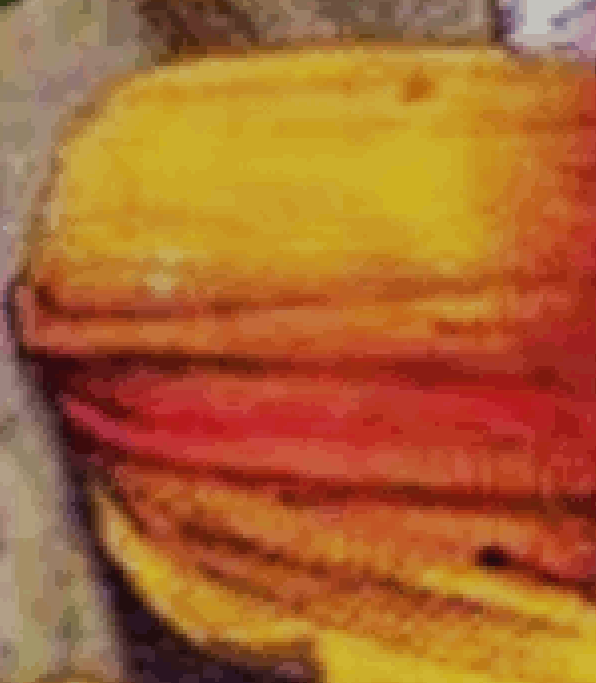
Octavian gloating
or is it Lucius? |
- This story takes on a Zerah
and Perez or a Jacob and Esau type of vibe, which of Caesar's
sons has the true right to Roman rule?
- It appears
possibly that
Caesarion's side of the family did.
- Is this just another act of thievery
of birthright by
a half-brother (or uncle)?
- How did Augustus manage to
claim the throne after Julius Caesar's death?
- Isn't it just
amazing that Cleo and Antony supposedly got out of the way and
she committed suicide giving a free path to the throne to Augustus?
- And isn't it just amazing that
Augustus was posthumously adopted in Julius Caesar's will
(after Caesar's death, how handy).
Augustus, originally Octavian, claimed the Roman
throne by first being named Julius Caesar's heir in
his will, which provided political and financial
support. He then formed the Second Triumvirate, a
power-sharing alliance with Mark Antony and Marcus
Lepidus, and fought Caesar's assassins. After
defeating his rivals, particularly Mark Antony and
Cleopatra at the Battle of Actium, Octavian emerged as
the sole ruler, eventually becoming the first Roman
emperor. (Assistant)
|
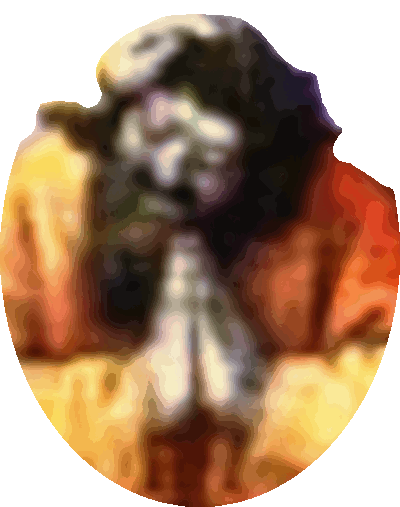
Warrior priest |
- We will have to
investigate more about what Lucius Julius Caesar (Augustus adopted
son from Agrippa) had to do with things that Spinoza ran into.
- Is it possible he was a material Roman version of Christ
because he was indeed in line for the throne the way things
were so handily going.
- And if so, would also be known as
the anti-Christ.
- We do know that the Roman church had
their own version of Christ, the warrior and priest, not the
savior.
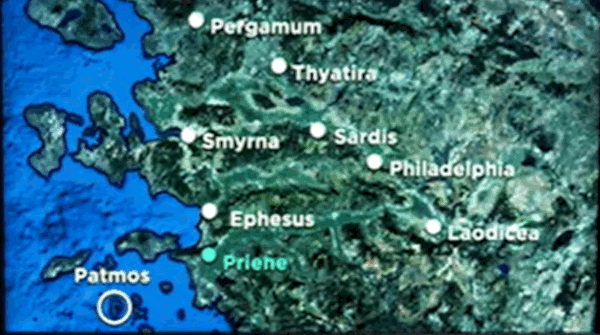
Asia Minor |
- One more source was found in western Asia Minor which
is present-day Turkey in what was known in the 1st-century as
the Roman province of Asia.
- You will recognize most of
the cities because they are the cities of the seven letters of
the churches in Revelation.
- Just south of Ephesus is a
site called Prienc, now ruins, where there is an agora or
marketplace, and at the north end there are many shops where
an inscription was found that is known as the Priene calendar
inscription, but it's actual title is Ogis 2.
Ogis 2 was composed in roughly 9 BC so several
years before Jesus was born, and notice what this
inscription states that was being promoted throughout
the entire Roman world; "Since Providence, which has
ordered all things and is deeply interested in our
life, has set in most perfect order by giving
Augustus, whom she filled with virtue that he might
benefit humankind sending him as a savior both for us
and for our descendants, that he might end war and
arrange all things,,,and since the birthday of the god
Augustus was the beginning of the gospel (good news)
for the world." (Walking the Text)
|
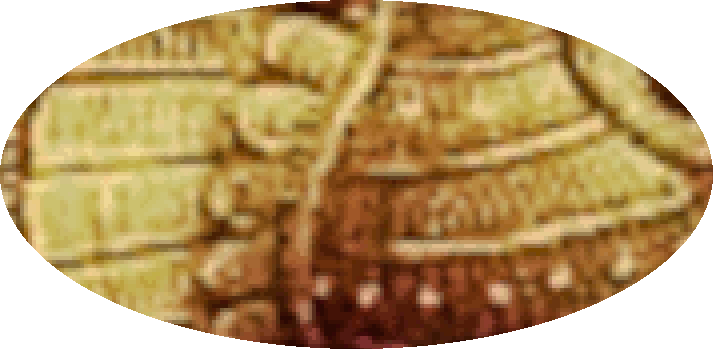
Golden Age |
-
These were the headlines of who Caesar Augustus, who was
proclaimed the divine son of god, before Jesus was even born.
- He had a gospel, an euangelion of good news, of peace and
prosperity for all of humanity, the salvation for all of
humanity, and according to Horace, with forgiveness of sins.
- It appears that everything we believe about Jesus Christ was
already said about Caesar Augustus.
- This brought a
conflict to Christianity because it created a Jesus versus
Caesar tension, however, this is sacred and holy in connection
to Jesus.
Euangelion is an Ancient Greek word meaning "good news" or "glad tidings". It was used in the ancient Greco-Roman world to describe a significant event, like a military victory or the ascension of a ruler, and in Christianity, it specifically refers to the "good news" of salvation through Jesus Christ. (Assistant)
|
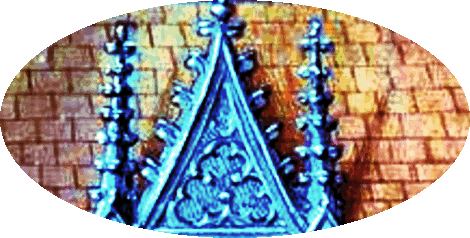 |
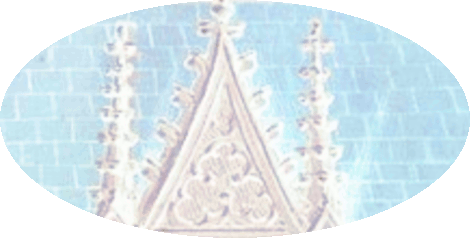 |
|
Two kingdoms |
- Because the very usage of the same titles for both
sets up a dicohtomy because both Caesar and Jesus represent
different kinds of kingdoms, so that means that one must be
right and the other one wrong.
- And this causes you to
pause and think, if this is true of Caesar or this is true of
Jesus, it can't be true of both because the language is the
same.
- You can't have both kingdoms since they're
in direct conflict with each other so you've got to choose
which one you're going to be part of.
That tension that you feel understanding this is
the tension that the gospel writers when they were
composing this would have recognized in their audience
upon receiving the words they were writing. (Walking the Text)
|

Beginning |
- Even when it comes to this Priene calendar inscription
where it's talking about how Augustus is the son of god and
it's the beginning of the gospel, the good news, for the
entire world.
- The beginning of the gospel of Caesar
Augustus and then Mark begins his gospel the exact same way.
The beginning of the gospel of Jesus Christ, the
son of god. (Mark 1:1)
|
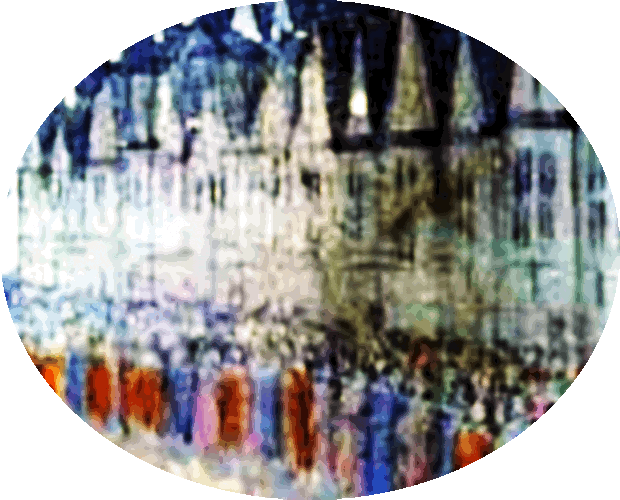
Census taken |
- So everyone knows that what was attributed to Caesar
Augustus, was also given to Jesus.
- In the biblical
gospels, Luke continues on and
records the birth narrative of Jesus and talked about Caesar
Augustus ordering a census taken of the entire Roman world.
- Luke understood everything about Caesar Augustus and how he
came to throne.
- Things like how the republic grew into an
empire and what was going on in the Roman world concerning
Caesar.
In those days Caesar Augustus issued a decree that a census should be taken of the entire Roman world. And everyone went to their own town to register.
So Joseph also went up from the town of Nazareth in Galilee to Judea, to Bethlehem the town of David, because he belonged to the house and line of David. He went there to register with Mary, who was pledged to be married to him and was expecting a child. (Luke 2:1-5)
|

Shepherd |
- When Luke includes these details they're all true but
everybody would have seen the contrasts.
- So Luke talks
about the angel who brings the shepherds good news,
euangelion, that will bring great joy for all the people.
-
The news that the Messiah was born was great news for the Jews
but he was also called the Savior and that was the same for
Caesar.
- He was Savior, he was Lord, everyone knew that
and yet the pronouncement to the shepherds that there's a new
gospel in town, a new Lord on the scene, and it is Jesus
Christ, the true son of God.
But the angel said to them, "Do not be afraid I
bring you good news that will cause great joy for all
the people. Today in the town of David a Savior has
been born to you, he is the Messiah, the Lord." (Luke 2:10-11)
|

Glory |
- And the angels proclaimed "Glory to God in the highest
heaven, and on earth peace."
- Rome had their peace and
Jesus has their peace, and they're very different but that is
how Mark and Luke wrote it.
- When Paul becomes involved we
begin to understand that all this began with Caesar Augustus
and it would pass on to Tiberius and the emperors that came
later.
- Everything that Paul was doing was demonstrating
that it is about Jesus versus Caesar because it's about the
spirtual world and that it's not the physical world that
matters the most.
- There was scripture that Paul was
drawing upon in Galatians.
But when the fullness of time had come, God sent
forth his son. (Galatians 4:4)
|

Height of power |
- This was the idea that Jesus came into the world while
Caesar Augustus, the most significant emperor in Roman
history, when he was at the height of his power that's when
God sent Jesus into the world.
- And this was not a big
shocker because if you understand Hebrew scriptures notably in
Daniel where he introduces God's new kingdom on earth.
-
There is a dream that Nebuchadnezzar receives and Daniel
interprets the dream and it's about four kingdoms and how
Babylon is going to unfold.
- And then when the 4th
kingdom, which we understand to be Rome is on the scene, the
God of heaven intervenes.
In the time of those kings, the God of heaven will set up a kingdom that will never be destroyed, nor will it be left to another people. It will crush all those kingdoms and bring them to an end, but it will itself endure forever. This is the meaning of the vision of the rock cut out of a mountain, but not by human hands—a rock that broke the iron, the bronze, the clay, the silver and the gold to pieces. (Daniel
2:44-45)
|

Babylon---->Medo-Persia---->Greece---->Rome |
- At that time, Rome was on the world stage and Paul
verified that God had been orchestrating this all along,
creating all these events for this moment for Jesus to enter.
- Now God's everlasting kingdom is going to be established in
and through Jesus Christ.
- And that it will come in
contrast to the kingdom in Rome so Paul throughout his letters
is demonstrating this conflict in reality and one of the
places you see this is when he's writing to Rome.
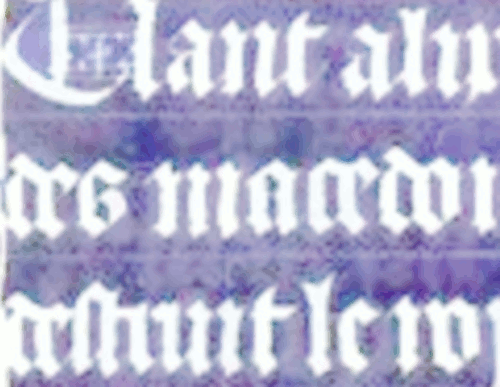
Letters |
- Of course, Paul's going to establish the foundation
between Caesar and Jesus in his opening verses set apart for
the gospel of God, not the gospel of Caesar.
- This he
promised beforehand through his prophets in the holy
scriptures concerning his son who was declared to be the Son
of God in power.
- Paul wanted to get the message out there
and then address the implications for everyone living in Rome
who would receive the letter written to the Romans.
Paul, a servant of Christ Jesus, called to be an apostle and set apart for the gospel of God—the gospel he promised beforehand through his prophets in the Holy Scriptures
regarding his Son, who as to his earthly life was a descendant of David,
and who through the Spirit of holiness was appointed
the Son of God in power by his resurrection from the dead: Jesus Christ our Lord. (Romans
1:1-4)
|
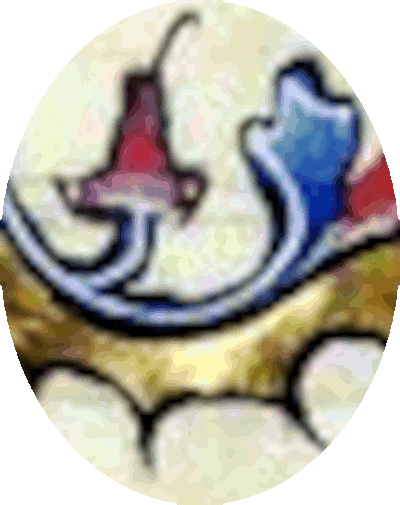
Caesar |
- There's one other aspect of the story and that is all
the titles that were given to Caesar; Savior of the world,
bringer of peace, son of god, Lord, equal to the beginning of
all things, image of the gods, head of the body of the world,
supreme one, the firstborn son, salvation through Caesar
alone.
- In a letter that Paul wrote to the Colossians, but
it was within the Roman Empire and one of the most powerful
things ever written about Jesus called 'The Supremacy of the
Son of God.'
The Son is the image of the invisible God, the
firstborn over all creation. For in him all things were created: things in heaven and on earth, visible and invisible, whether thrones or powers or rulers or authorities; all things have been created through him and for him. He is before all things, and in him all things hold together. (Colossians 1:15-17)
|

Roman context |
- When you hear that in light of the Roman context in
which it was written into, it starts to sink in and you
realize what this was in relation to what was already being
said about Caesar, and who Jesus Christ was in the midst of
these dueling narratives.
- What's more, how did Jesus
bring about his peace in the world, by dying on a cross, the
symbol of Roman victory and might.
- And this is the
tension of the New Testament, of Jesus versus Caesar.
And he is the head of the body, the church; he is the beginning and the firstborn from among the dead, so that in everything he might have the supremacy. For God was pleased to have all his fullness dwell in him, and through him to reconcile to himself all things, whether things on earth or things in heaven, by making peace through his blood, shed on the cross. (Colossians 1:18-20)
|
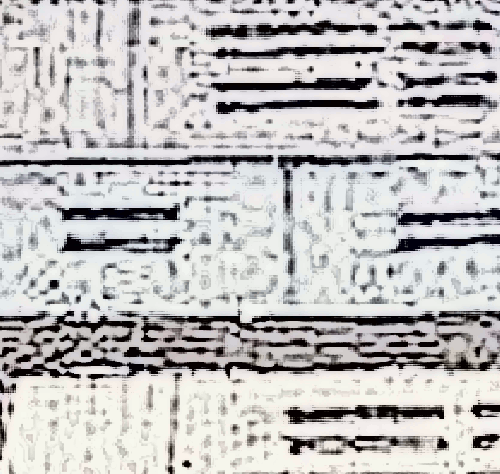
Drawers |
- When you get the eyes to see what Mark, Luke and
specifically Paul were addressing, this contrast, you are able
to see what Paul is saying with greater clarity and
understanding.
- Because there was a narrative of the Roman
Empire that has come forward 2,000 years and it's the
narrative of the world as well.
- It's very set in its ways
and it says, this is what is important, this is what you do,
this is how you serve yourself, this is what life is all
about.
- There's a narrative introduced 2,000 years ago
about Jesus who points out that the kingdom that I inhabit,
lead and rule, that I'm inviting you to be a part of, is very
different than the kingdom of the world.
Jesus said, “My kingdom is not of this world. If it were, my servants would fight to prevent my arrest by the Jewish leaders. But now my kingdom is from another place.” (John
18:36)
|

Kingdom |
- Some consider Jesus' kingdom as upside down because
everything the world values is flipped on its head in the
kingdom of Jesus Christ.
- And when you understand what is
going on in the Roman world, and how the New Testament writers
are telling us this, about the way of Jesus and how it's
conflicting.
- You have better eyes to see how to live more
faithfully to the Kingdom of Jesus Christ than to Caesar's
that moves forward as our kingdoms of the world.
The fault, dear Brutus, is not in our stars, but in ourselves. (Shakespeare, Julius Caesar)
|
|
|
Mortal as I am, I know that I am born for a day,
but when I follow the serried multitude of the stars in their circular course,
my feet no longer touch the earth;
I ascend to Zeus himself to feast me on ambrosia, the food of the gods.
Claudius Ptolemy

|

